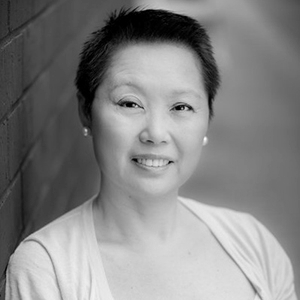
Ceci Chan
One Peaceful World
While she grew up Catholic, Ceci Chan became dedicated to the Jewish concept of tikkun olam, or “repairing the world” over 20 years ago. The concept also manifests itself in the Chinese phrase that translates to “one united world,” 世界大同, which was a concept representing the highest level of the ideal social system, an equal, classless, borderless and stateless world. The concept comes from Confucius recorded in the "Book of Rites • Li Yun".
Ceci is active in making investments in the USA, China, and in Europe but devotes a lot of time to support the charitable organizations that she values. She believes USC Shoah Foundation is one of the most valuable organizations in positively improving human behavior. “People from diverse backgrounds must learn that we all belong to one race—the human race,” she says. “Enabling students and others to learn from history, as well as from current events, is one of the most effective ways for us to better the world.”
Her work with the Institute includes service as a Board of Councilors member, helping launch the Nanjing Testimony Projects, and creating essential connections in China. Such outreach is crucial, given the fact that the country accounts for nearly 20 percent of the world’s population. “There are hundreds of millions of people in China who could learn from USC Shoah Foundation’s education content, and their kindness would surely improve the world," she notes. Therefore, it is important to educate Chinese citizens, as well as people from India and other countries, about the Holocaust and other collective acts of crimes against humanity. "People need to learn that violence against other humans are not acceptable, whether the horrific acts were committed against the Jews, Armenians, Guatamelans, the Chinese, or the Rohingyas. When one of us is butchered we are all harmed."
“The examination of organized murders will hopefully cause people to think about their own choices and behavior,” Chan says.
Recently, Chan co-produced The Girl and the Picture, a documentary about the story of a Nanjing massacre survivor Madame Xia Shuqin. She also helped bring Madame Xia Shuqin, who was eight years old when Japanese forces stormed the city in December 1937, to the Institute to add her story to the New Dimensions in Testimony collection. Along with the more than 100 testimonies gathered from other Nanjing eyewitnesses, these chronicles form a vital array of educational materials about events in the Asian Theatre during World War II.
“By approaching genocide education through the stories of its victims, USC Shoah Foundation helps students to develop empathy and to recognize the universality of these issues,” she says. “This critical methodology enables students to realize their roles and responsibilities as human beings. The work being done by the USC Shoah Foundation is vitally important and deserves our utmost appreciation and sustained support."